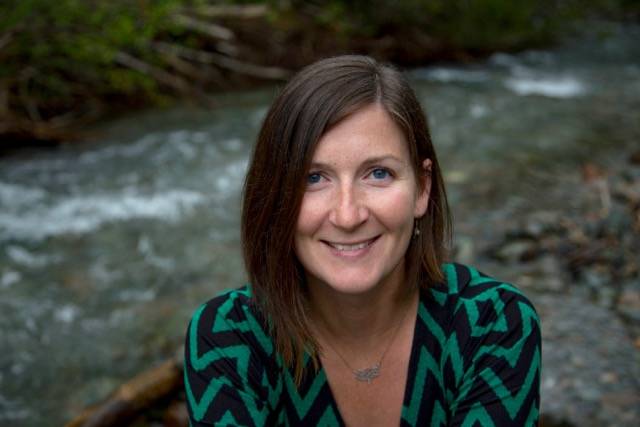In a recent Empire interview, former Gov. Frank Murkowski weighed in on all things Southeast Alaska, timber and roads, sharing a “vision” for Southeast that fails to look beyond the roads we’ve already traveled.
The elder Murkowski asserted that timber and roads are our economic future, that “Outside interests” inform efforts to preserve the Roadless Rule, and contemplated Alaska’s current economic predicament, commenting “without a strong economy, the state can’t exist.”
On that last point, we agree. Alaska needs a strong economy, and the current governor lacks the vision to build one. Where Murkowski and I differ, is on a vision for how we get there.
My organization, the Southeast Alaska Conservation Council, turns 50 years old this year, and was created by a hardy group of geographically remote Southeast Alaskans, who in the early days of industrial logging, witnessed sweeping clearcuts peeling back the forest in Southeast, and realized that if they didn’t act quickly to protect their home, it was possible no one would.
[Congress attempts to strengthen Roadless Rule]
And so they organized. Southeast Alaskans reached out to their neighbors and other concerned individuals in communities throughout Southeast, forming a council to help them stop the big timber sales slated for the Tongass.
That organization grew and became the Southeast Alaska Conservation Council, a robust and increasingly diverse group of Southeast Alaskans who help lead the fight to conserve Southeast on behalf of and for those who live here today, and will in the future — not as “Outside interests,” but as community advocates. We do so in part by protecting the Tongass, pushing back on timber sales and fighting to keep protections under the Roadless Rule.
In my job as executive director at SEACC, I have had the privilege of traveling throughout Southeast Alaska, spending time in communities of all sizes, connecting with SEACC’s many lifelong members and meeting new ones. These new SEACC supporters include young people — my peers — who are building their futures here and looking for leaders with vision to take us forward.
When I visit communities in Southeast, I always ask people I meet what they want from their political leaders and for their region, and what kind of opportunities they think will help their communities succeed.
[Environmental orgs sue Forest Service over ‘mammoth’ Southeast timber sale]
From political forums to informal encounters in restaurants, conversations over coffee to those held around bonfires on Southeast shores, I have never heard a Southeast Alaskan wish for a return to clearcut logging of the Tongass, or for more industrial timber jobs or logging roads. It just doesn’t happen. And I ask these questions of everyone — not just people I agree with.
Clearcut logging of old-growth forests is simply not a part of the lived experience of the vast majority of Southeast Alaskans in 2019, and is not a part of our vision for our future. Industrial clearcut logging made up less than 1 percent of both earnings and jobs in Southeast in 2018, and I can count on one hand the outspoken Southeast Alaskans who advocate for more industrial logging and logging roads on the Tongass: Murkowski and Jim Clark are two of them.
There is no clamor for expanded logging and logging roads in Southeast; there are just a few outsized voices with access and influence, chasing after an outdated dream.
Instead, when I meet with Southeast Alaskans, I hear concern for the places they love. I hear about a need for forest restoration, job training and retraining, tax credits and incentives for businesses, and for protections for tourism and fishing — the real drivers of the Southeast economy. I hear a need for a contemporary vision for economic development that is more responsive to our identity and values than that of the old banana republic days in Southeast.
Southeast Alaskans want well-paying jobs, a healthy forest and a resilient economy. In every community I visit, community members are starting small businesses working with their hands, our forest and their friends, building diverse local economies together.
These are all opportunities we could build toward, and that Sen. Lisa Murkowski could advocate for and support, if the Murkowskis would join the rest of Southeast in looking forward, instead of always looking backward.
• Meredith Trainor is the executive director of the Southeast Alaska Conservation Council, a nearly 50-year-old conservation nonprofit homegrown in the Tongass National Forest. My Turns and Letters to the Editor represent the view of the author, not the view of the Juneau Empire.

